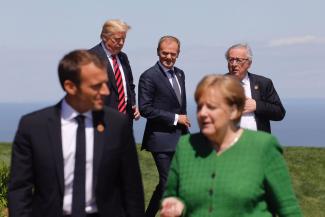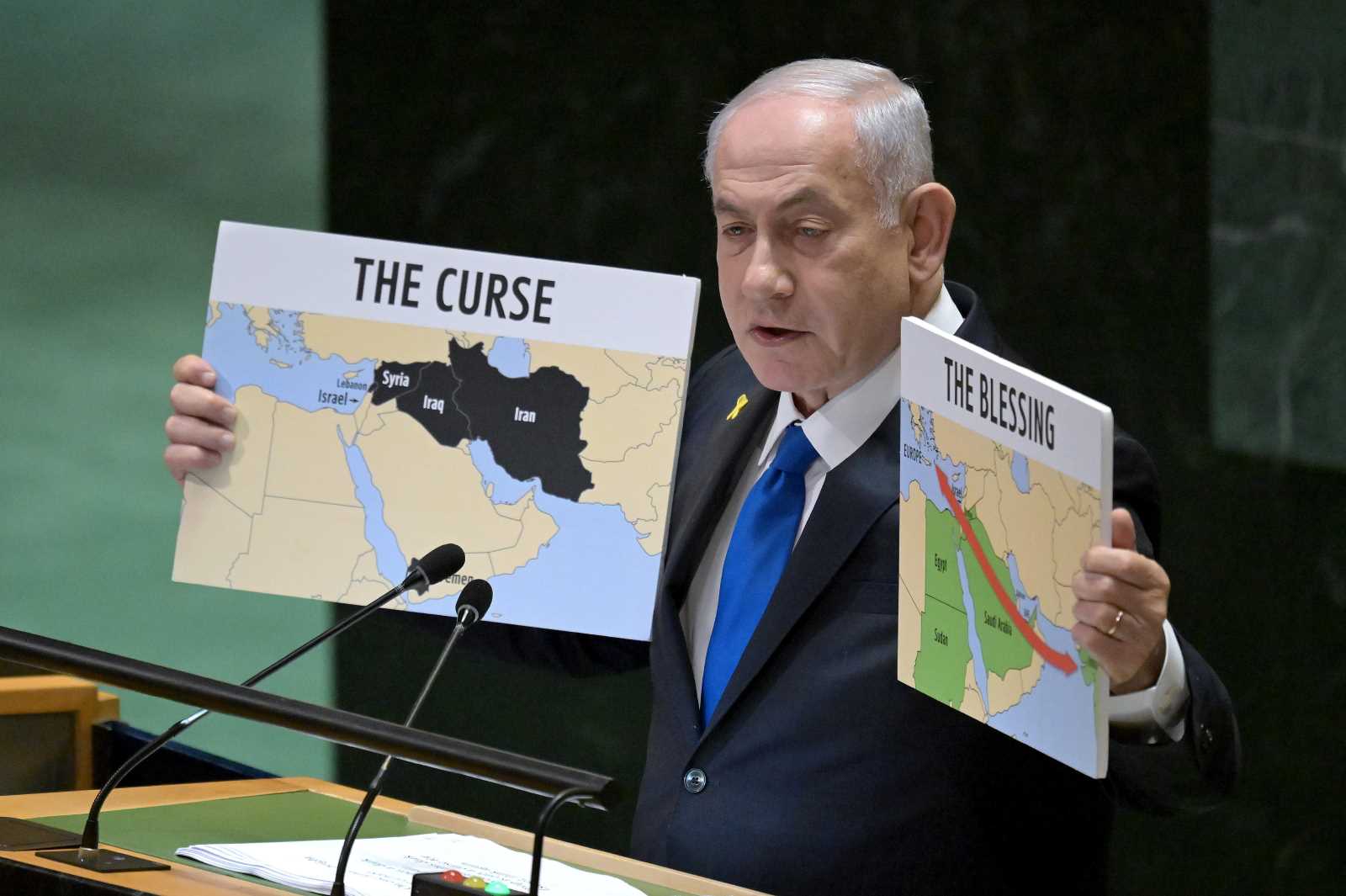Blog
Trump is in trouble and increasingly erratic

When Mike Pompeo, Trump’s secretary of state, met with European leaders yesterday, they told him that they are still endorsing the nuclear deal with Iran and oppose escalation in the region. That is the minimum of what they needed to do. They would be well advised to try to contain Trump’s reckless approaches to global affaires as best they can.
The European public may not be fully aware of how difficult Trump’s position has become at home. Nancy Pelosi, the speaker of the House of Representatives, has recently spoken of a “constitutional crisis”, and many other Democratic leaders agree. That view is entirely merited. The White House has basically stopped cooperating with the lower chamber of Congress by refusing to give it the information and documents it needs to carry out its role of oversight as a coequal branch of government.
The circular reasoning of Trump and his supporters is bizarre. They argue that Robert Mueller, the special counsel, cleared the president of all charges because he did not indict him. The reason that Mueller did not do so, however, was that he did not have a mandate to indict the president. The idea was that he would compile the evidence. According to the US constitution, the ultimate decisions must be made by Congress. Congressmen and women now want to know more details so they can act according to the constitution, but the administration pretends that there are no more open questions. The truth is that “more than 400 former federal prosecutors have signed a new letter claiming that President Donald Trump’s interference in the Russia investigation, as described by special counsel Robert Mueller’s report, should have led to ‘multiple felony charges for obstruction of justice’”.
Anybody with a minimal understanding of checks and balances must see that this is obviously a constitutional crisis – unless of course, they want to defend Trump at all costs. That is precisely what Trump supporters want. If, however, Trump has nothing to hide, why will he not hand over the information?
In this troublesome scenario, Trump is acting ever more recklessly in foreign affairs. One reason is certainly that he wants to distract public attention from his domestic problems. Another reason is that he is trying to impress his base by appearing to be strong.
Erratic and reckless action, however, are never a sign of strength – and Trump’s recent decisions do not add up to anything coherent. He is risking war with Iran by imposing further sanctions. When he quit the nuclear deal one year ago, the propaganda was that Iran would cave in fast. Things didn’t work out that way, and yet more pressure is unlikely to deliver the desired results.
While Pompeo insists that the US does not want war, the administration’s manoeuvring indicates a readiness to go to war. Diplomatically, however, the USA is utterly unprepared. It would be wise to forge alliances and isolate Iran, but so far, the US has only really brought Israel and Saudi Arabia on board. At the same time, Trump’s trade policies are alienating China and other countries who import Iranian oil. Adding to the tensions, Washington imposed additional tariffs on imports from China.
US grandstanding isn’t working out in other parts of the world either. In January, White House rhetoric suggested that Venezuela’s authoritarian regime was sure to be toppled soon. It is still in power, and the US administration offers little else than belligerent rhetoric. At the same time, it has cut aid to Central American governments, undermining any kind of alliance it might want to build in Latin America.
The list goes on. The Trump administration pulled out of the Arctic Council because it won’t countenance other members’ insistence on tackling climate change. It does not agree to global rules on exporting plastic waste simply because it does not like global rules. This is not leadership, this is dereliction of duty.
European policymakers need to take the big picture into account when responding to Washington these days. Yes, Iran is run by an awful dictatorship, but no, disregard for the nuclear deal will not make things better. EU leaders should spell out clearly to all partners in the US, including legislators from both parties in Congress, that they will not support any kind of war effort in Iran. They should also insist that trade disputes with China must be dealt with by WTO panels and that the USA has a responsibility to ensure that these panels are viable.
European leaders like to hold lectures about good governance, democratic rule and responsible policymaking dealing with developing countries and emerging markets. For obvious reasons, it is more challenging to tackle the Trump administration in the same way – but it is also more important.
The current US president’s legitimacy is severely damaged at home. His reckless policies risk war and exacerbate environmental degradation. If European leaders do not manage to unite and stand up to him, they are missing an important opportunity to assume global leadership. They are obviously busy with concerns of their own in view of the European elections this month, but it should encourage them that Trump is quite unpopular in Europe and that Europeans are certainly not keen on war in the Middle East.
P.S.: By the way, this blog post is not an expression of anti-Americanism. Trump’s approval ratings are low. Given that Trump did not win the popular vote (his opponent Hillary Clinton getting almost 3 million votes more than he did), Pelosi’s claim to represent the American people is at least as strong as his. The House of Representatives is the only institution of the US government that proportionally represents the people. Democrats won the majority of seats, which is why Pelosi is the speaker.












